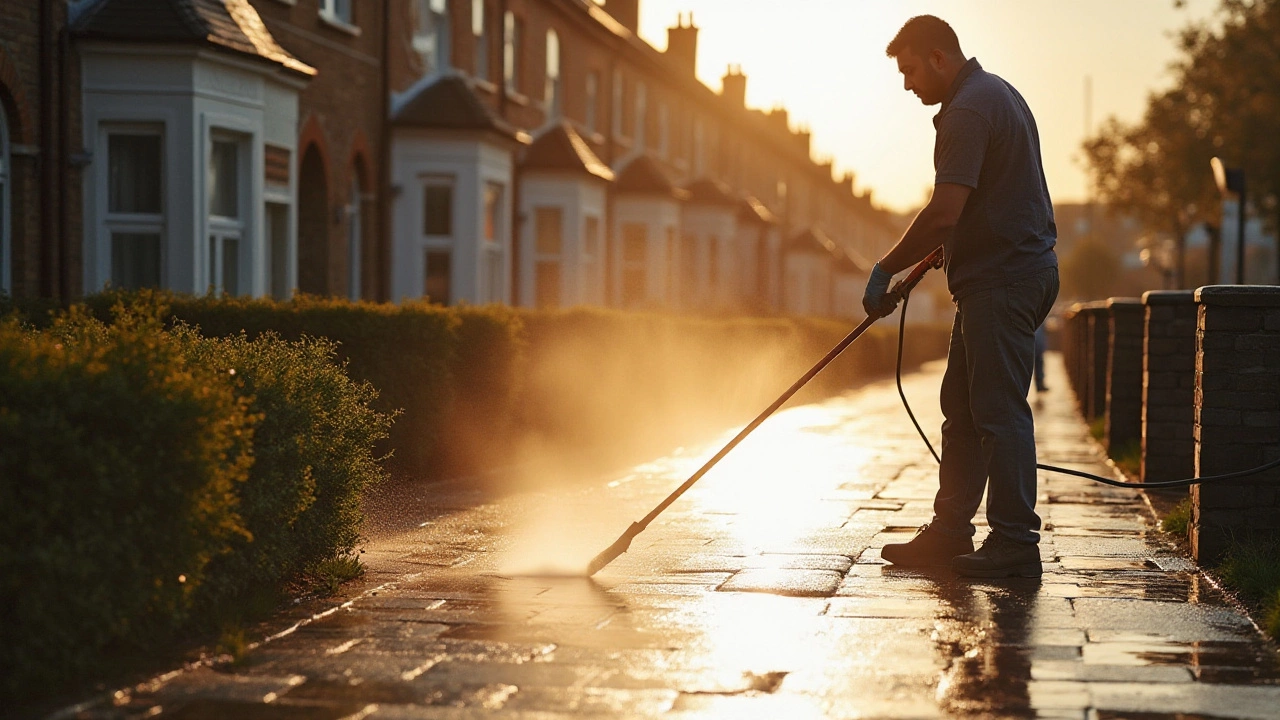Cleaning Industry Earnings: A Clear Look at UK Pay
Ever wonder how much a cleaner actually takes home? Whether you’re thinking about a new job, want to negotiate a raise, or just curious about the market, the numbers are easier to understand than you might think. In this guide we break down typical earnings for residential and commercial cleaners, look at the biggest pay drivers, and give you simple steps to improve your income.
How Much Do Residential Cleaners Earn?
Most people start with a house‑cleaning gig. In the UK the average hourly rate for a residential cleaner sits between £10 and £15. Big cities like London push the top end up to £20 an hour, while rural areas can sit closer to £9. If you work for an agency, you’ll often see a flat fee per job – usually £30‑£45 for a two‑hour tidy, £70‑£90 for a full home clean.
Key things that move the needle:
- Experience: New cleaners start at the low end. After a year of reliable work you can ask for a 10‑15% bump.
- Special services: Deep cleans, carpet shampooing, or post‑renovation cleans command premium rates (often £25‑£30 per hour).
- Client type: Private homeowners usually pay less than short‑term lets or Airbnb hosts, who value quick turnover and may pay more.
Tip: Offer a “green clean” using eco‑friendly products. Many clients are willing to add a few pounds for a sustainable service, and it sets you apart from the competition.
Factors That Influence Commercial Cleaning Pay
Commercial cleaning jobs – offices, schools, hospitals – pay higher because they involve larger spaces, stricter schedules, and sometimes specialized equipment. The average hourly wage ranges from £12 to £18, with senior team leaders earning £20‑£25.
What pushes the salary up?
- Certification: Holding a Level 2 Health & Safety or HETAS (for industrial cleaning) can add £2‑£4 per hour.
- Shift timing: Night or weekend shifts are often paid at overtime rates (1.5× regular pay).
- Contract size: Long‑term contracts with big firms guarantee steady work and sometimes include performance bonuses.
To maximize earnings, aim for a mixed portfolio – keep a few regular residential clients for steady cash flow, and chase larger commercial contracts for higher pay.
Finally, remember that self‑employment lets you set your own rates, but you’ll also cover taxes, insurance, and transport. A quick online calculator shows that a £15 hourly rate as a sole trader translates to about £11‑£12 after expenses and taxes.
Bottom line: Cleaners in the UK can earn a decent living, especially if they specialize, get certified, and balance residential and commercial work. Keep these tips in mind, negotiate confidently, and watch your paycheck grow.

Unlocking Profits: The Money-Making Potential of Power Washing
Power washing, also known as pressure washing, is more than just a way to clean surfaces. This lucrative business opportunity is growing rapidly as both residential and commercial properties seek to maintain their pristine appearances. With relatively low startup costs and the potential for high earnings, individuals can transform a basic cleaning service into a thriving enterprise. This article explores how you can turn your power washing venture into a profitable endeavor, the skills needed, and marketing strategies that can help you stand out in this competitive industry.
Read More